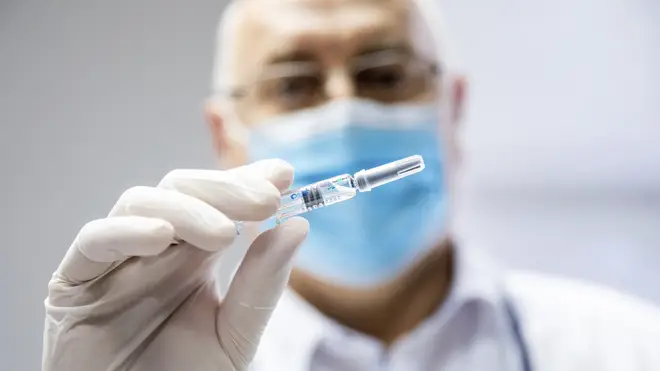
Nick Ferrari 7am - 10am
24 February 2021, 17:24

The move comes as officials aim to bolster trust in the vaccine’s safety and effectiveness.
Doctors in Hungary have begun administering a Covid-19 vaccine developed in China, making the country the first EU nation to use a Chinese jab.
The move comes as officials aim to bolster trust in the vaccine’s safety and effectiveness.
GPs around the European country were instructed to administer the shots, developed by Chinese state-owned company Sinopharm, to elderly patients.
The Sinopharm jab brings the number of vaccines currently in use in Hungary to five, including the Russian-developed Sputnik V, more than in any other country in the 27-nation EU.
But for the country’s expanded palette of vaccines to be put to full use, officials are seeking to increase lagging public trust in those produced in Eastern countries.
“I ask for all fears to be dispelled about the Chinese and Russian vaccines, because more than 30 million people have received these vaccines without any particular problems,” Hungary’s chief medical officer, Cecilia Muller, said at a virtual media briefing.
Hungary’s government has sharply criticised the speed of the EU’s vaccine procurement programme, and sought to purchase doses from countries such as China and Russia despite polling that shows trust in those vaccines is low among Hungarians.
A survey of 1,000 people in the capital of Budapest by pollster Median and the 21 Research Centre showed that among those willing to be vaccinated, only 27% would take a Chinese vaccine and 43% a Russian vaccine, compared with 84% who would take a jab developed in Western countries.
Still, Hungarian officials expect that the Sinopharm vaccine, which received final approval last week, will provide a sharp boost in the country’s vaccination rate: as many as 368,000 people could be inoculated this week alone, compared with 471,000 that have received a shot since vaccinations began in December, said state secretary Dr Istvan Gyorgy, adding that 275,000 people will receive the Sinopharm jab this week.
“Every vaccine available in Hungary is safe and able to provide protection against virus infection. This is true of the Eastern vaccines as well, despite all rumours to the contrary,” Mr Gyorgy said.

In Budapest, Dr Zoltan Komaromi began administering the Sinopharm vaccine on Wednesday despite his personal concerns over the size of its trial samples and what he perceived as pressure from high-ranking government officials on Hungary’s healthcare authorities to approve the vaccine.
“There is uncertainty because of politicians talking back and forth about the vaccines,” he said. “It looked very bad to ordinary people that the foreign minister and prime minister effectively called on authorities to give official approval.”
Dr Komaromi, who is also a health spokesman for a Hungarian opposition party, received 55 doses of the vaccine on Wednesday and sent emails to his patients informing them of all possible risks and side-effects. Of the 120 patients he contacted, 22 said they would take the vaccine and 75 refused.
The Hungarian government has accused opposition parties of fomenting distrust of its vaccination programme, especially concerning those vaccines procured outside of the EU framework.
A steady decline in new coronavirus cases and deaths that began in late December reversed course early this month, and the government has emphasised that speeding up vaccinations is the only way to head off an apparent “third wave” of the pandemic.
Hungary’s procurement efforts have placed it in first place in the EU in the number of vaccine doses distributed to the country per 100 inhabitants, according to data from the European Centre for Disease Prevention and Control, an EU agency.
Hungary has agreed to purchase five million doses of the Sinopharm vaccine over the next four months, enough to inoculate 2.5 million people with the two-round shot in the country of around 10 million.